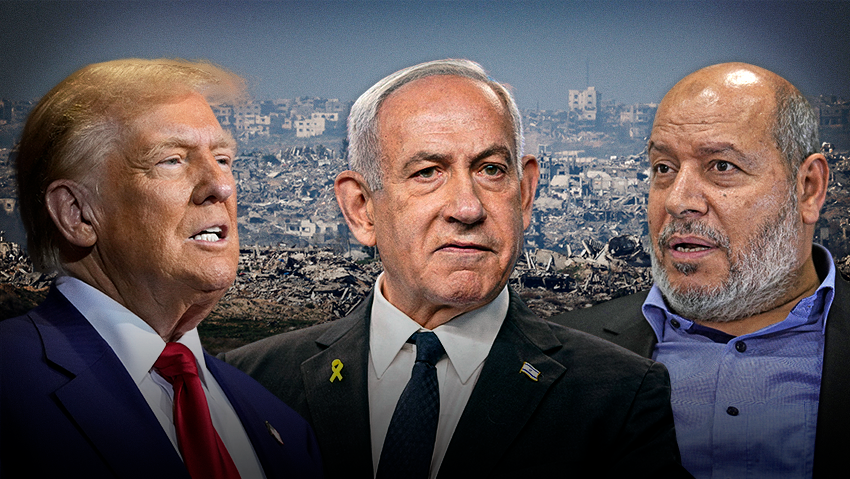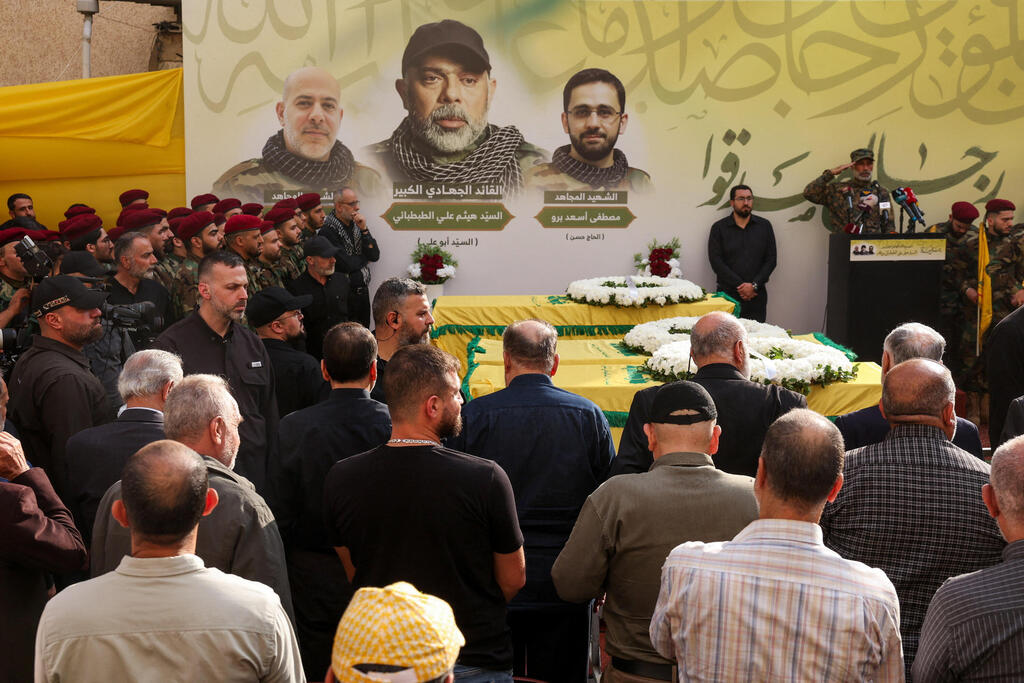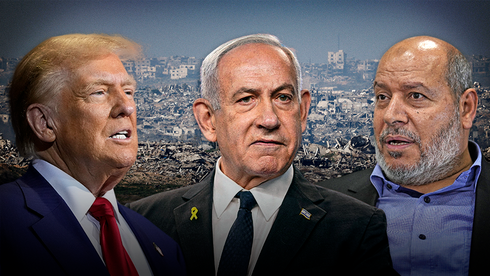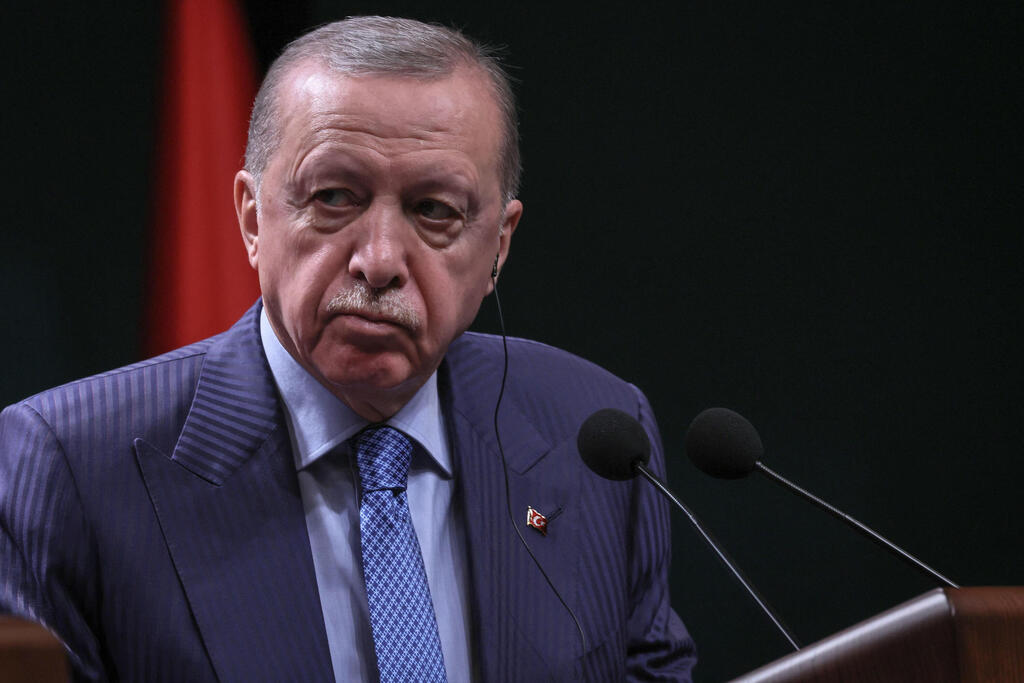Israeli officials now believe they may be forced to dismantle Hamas on their own, as delays in forming a U.S.-backed international stabilization force have cast doubt on key elements of the Gaza ceasefire plan.
Despite efforts by Egypt, Turkey and Qatar to push forward the next stage of the ceasefire during a meeting Tuesday in Cairo — held with coordination from the United States — Israeli and regional officials say the absence of a functioning international force is threatening to derail the entire process. The envisioned force, known as the International Stabilization Force (ISF), was meant to enter Gaza after the fighting ends to help disarm Hamas and stabilize the territory.
4 View gallery


(Photo: AP Photo/Alex Brandon, REUTERS/Amir Cohen, AP Photo/Khalil Hamra, REUTERS/Nathan Howard)
“Without the force, disarming Hamas will be delayed — and in the end, Israel may have no choice but to do it alone,” one official said. “It’s extremely complex, and Hamas is showing no signs of voluntarily laying down its arms.”
Egyptian intelligence chief Hassan Rashad, Turkish intelligence head Ibrahim Kalin and Qatari Prime Minister Mohammed Al-Thani reportedly discussed strengthening joint efforts in cooperation with the United States. According to Arab media and Reuters, the three parties agreed to “continue strengthening coordination and cooperation with the Civil Military Coordination Center (CMCC)” and reviewed alleged “Israeli violations” of the truce terms.
Turkey and Qatar are now seeking to fill the current vacuum in Gaza, coordinating closely with Washington. “Israel is uncomfortable with this, but the fear is that without an alternative, Turkish and Qatari involvement could be imposed on it,” one official said.
As talks intensify over the return of hostages’ remains, tensions are reportedly rising between Israel and the U.S. regarding the second phase of the plan. Israeli officials say Hamas is violating its commitments under the Trump-mediated agreement, but the terrorist group — backed by Turkey and Qatar — accuses Israel of breaching the terms.
American officials, according to sources, have been blocking Israel from imposing new sanctions on Hamas at this stage, which Israeli officials say is allowing the group to stall. “The U.S. is losing patience,” one official said, “and we may soon see American pressure on Israel.”
According to Reuters, the Cairo summit’s focus was to “eliminate all obstacles to ensure the continuity of the ceasefire,” with particular emphasis on responding to Israeli actions.
Diplomatic sources said the fate of the ISF remains uncertain. While the U.S. insists it is committed to the plan and continues to seek contributors, few countries are stepping forward. Officials say Washington has told allies they can still assist behind the scenes — by contributing logistics, funding or support at the ISF command center in southern Israel — even if they do not send troops.
Still, the absence of an operational force has reinforced the Israeli realization that it may need to dismantle Hamas militarily on its own — a scenario Jerusalem had hoped to avoid.
Tensions with Hezbollah
Mike Waltz, the U.S. ambassador to the United Nations and former national security adviser under President Donald Trump, is set to visit Israel early next month. Waltz, considered one of Israel’s staunchest supporters in the current administration, will be making his first trip to the country in his current role. Israeli officials are attaching significant importance to the visit, viewing it as an opportunity to brief Waltz on the northern front and introduce him to various senior figures.
Waltz will be accompanied by Israel’s ambassador to the UN, Danny Danon, and is expected to meet with Prime Minister Benjamin Netanyahu, President Isaac Herzog and Foreign Minister Gideon Sa’ar.
4 View gallery


Funeral of Hezbollah’s second-in-command and de facto military chief, Haytham Ali Tabatabai, in Beirut
(Photo: REUTERS/Mohamed Azakir)
Following the assassination, Hezbollah is still debating its next move. A source close to the organization told AFP that “there are two opposing views within the group — some want to retaliate, others prefer restraint. For now, the leadership is opting for diplomacy.”
Nonetheless, the IDF is preparing for potential operations in Lebanon, if needed, to deter Hezbollah and degrade its capabilities. One year has passed since the northern ceasefire agreement was signed, which included provisions for Hezbollah’s disarmament by the Lebanese army, yet that has yet to be implemented. The IDF now believes Israel is approaching a major test of the “zero-tolerance” policy it adopted following the October 7 massacre.

